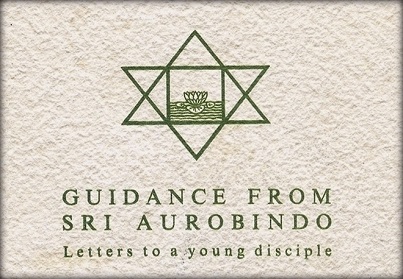
What is called one’s self (not the soul or the psychic being) above the head? Is it individual or universal? I mean, is one’s self the same as another’s self or is there individuality in it as is in the soul of each person?
The self is felt as either universal, one in all, or as universalised individual the same in essence as others, extended everywhere from each being but centred here. Of course centre is a way of speaking, because no physical centre is usually felt — only all the action takes place around the individual.
When the self is made active by sadhana, does it usually work directly or through the psychic being?
Directly but with the psychic being as its support. Usually however one does not so much feel the self active as an action in and through the self. What acts on the self depends on the realisation; it is sometimes Nature, sometimes the cosmic Divine, sometimes the Mother.
You said, “sometimes Nature”. What is meant by Nature with a capital N?
Nature = Prakriti.
Yesterday you wrote to me, “Usually however one does not so much feel the self active as an action in and through the self.” I am sorry I fail to grasp the phrase about the self and the action.
The Self or Atman is inactive; Nature (Prakriti) or Shakti acts. When the Self is felt it is first an infinite existence, wideness, silence, freedom, peace that is felt — that is called Atman or Self. When action takes place, it is according to the realisation either felt as forces of Nature working in that wideness, as the Divine Shakti working or as the Cosmic Divine or various powers of his working. It is not felt that the Self is acting.
Is not the self a portion of the Divine?
It is the individual being that is a portion of the Divine. The universal self or Atman which is the same in all, is not a portion but an aspect of the Divine.
Here what is exactly meant by the ‘individual being’ — is it the soul or the central being?
The central being and the soul are both in different ways portions of the Divine. They are in fact two aspects of the same entity, but one is unevolving above Nature, the other evolves a psychic being in Nature.
What is the difference between the cosmic Divine and the Mother?
It is a matter of realisation. In the Yoga of the Gita the Cosmic Divine is realised as Vasudeva (Krishna). The Vaishnavas realise it as Vishnu, the Shaivas as Shiva, the Tantrics (Shaktas) realise the Devi (Goddess) as the Cosmic and even as the Transcendent Divine.
Is not the Self and the Jivatman one and the same thing? The soul is considered as a spark of the Divine and the Jivatman as a portion of the Divine.
The self, Atman is in its nature either transcendent or universal (Paramatma, Atma); when it individualises and becomes a central being, then it is the Jivatman. The Jivatman feels his oneness with the universal but at the same time his central separateness as a portion of the Divine.
“What acts on the Self depends on the realisation; it is sometimes Nature, sometimes the cosmic Divine, sometimes the Mother.” Is the Self, which is an aspect of the Divine, so much open to anything that even Nature (lower Prakriti) can act on it?
It is in the Self not on it. Everything acts in the self — the whole play of Nature takes place in the Self, in the Divine. The Self contains the universe.
In that case are not the Self and the Divine one and the same? How is it then I was told that the Self was not even a portion of the Divine but only an aspect?
The Self is the Divine itself in an essential aspect; it is not a portion. There is no meaning in the phrase “not even a portion” or “only an aspect”. An aspect is not something inferior to a portion.
Could you kindly tell me in short the differences between the cosmic Truth and the Divine Truth?
The cosmic Truth is the truth of things as they are at present expressed in the universe. The Divine Truth is independent of the universe, above it and originates it.
I suppose in the eyes of the cosmic Divine everything here is perfect.
Everything here is not perfect but all works out the cosmic Will in the course of the ages.
How far does the cosmic Divine maintain his unity or relation with the Supramental Divine? We see here hundreds of things and movements about which the Real Divine would not at all say: “They are one with my Will.”
This is a world of evolution in Matter. If everything were supramental from the beginning, there would be no place for evolution.
When I asked about the difference between the cosmic and the Divine Truth it was not “the truth of things” that was in my mind. Rather I wanted to know the difference between the Yogi’s cosmic experiences and his spiritual experiences.
The Yogi’s cosmic experiences are spiritual experiences — experiences of the play of the Forces and its relation with the Self, the action of the Guide, what is behind the appearance of things, occurrences etc. etc., the actual relations of the workings of Purusha and Prakriti etc. The Divine Truth is the truth of the divine Essence, Consciousness, Self, Knowledge, Light, Power, Bliss. It is something from which the cosmos derives with all its movements, but it is more than the cosmos.



